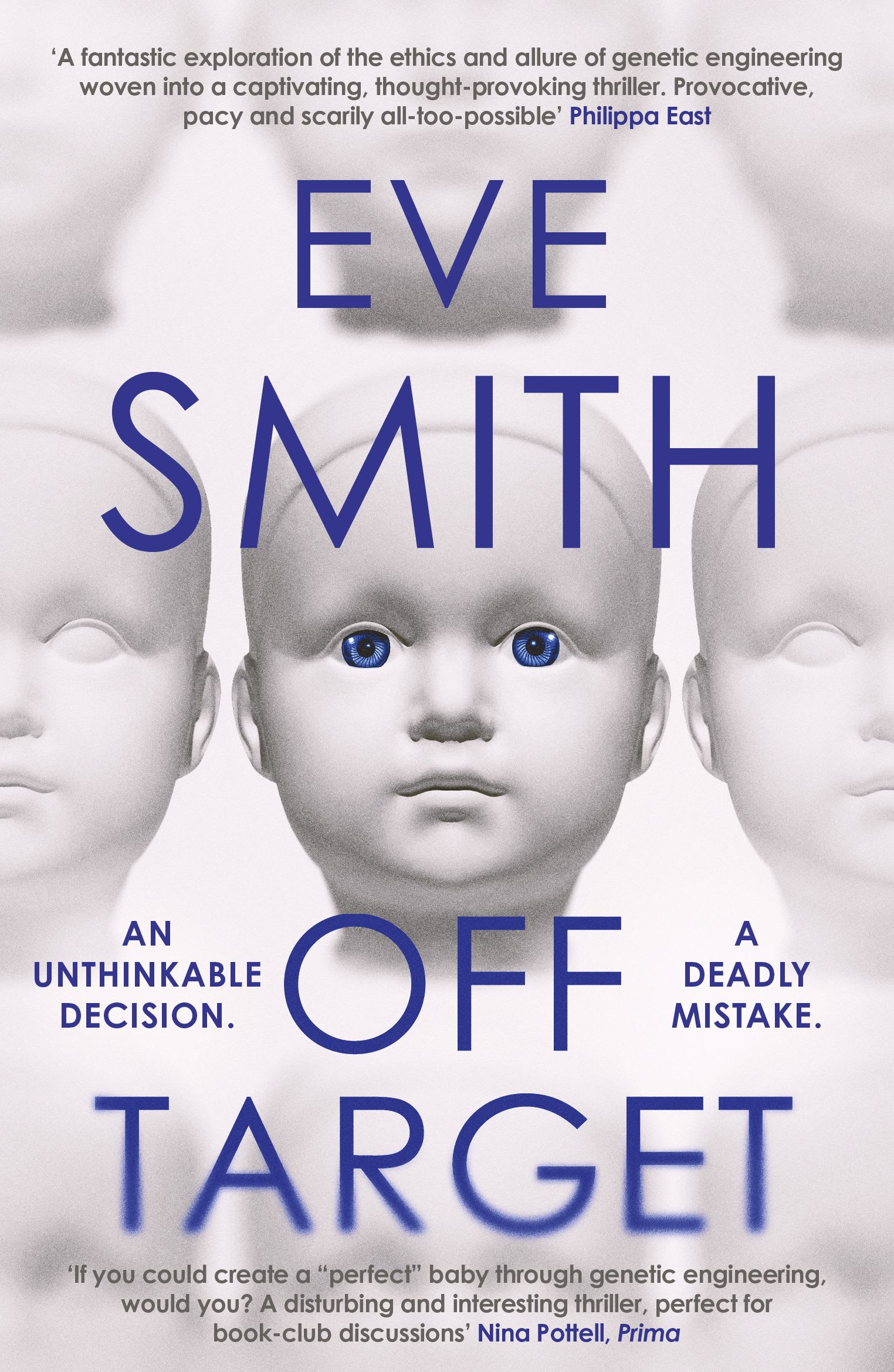Local author, Eve Smith, started her writing career as member of the creative writing group in Chipping Norton run by playwright Alan Pollock. She will be a panellist at this year’s Chippy Lit Fest in April, where she will be discussing her latest novel, reviewed here by Esther Lafferty.
Off Target is a novel that, whilst centred on the joy of pregnancy and motherhood, has a darker edge; exploring the allure of in-vitro gene modification. Set in in a world of the future that’s very much like today’s world with a handful of bells and whistles; one of which is the facility to perform gene editing on embryos. It’s easy to imagine that society could find itself in this place in a few years, where the ability to conceive, and the health of any future child, continues to be a key concern to wannabe parents.
Susan and her husband Steve are desperate for a baby and when she finally falls pregnant, will they at last become the family of which she has always dreamt? That the answer is no is clear in the first three pages of the book; a taster of what’s to come that takes the reader deep into a scenario that could be lifted from a fast-paced thriller.
And Off Target is a real page turner. Time rewinds and in the first half of this novel we follow Susan’s intriguing and gut-wrenching journey to becoming pregnant and the imminent arrival of her much longed-for baby. Susan finds herself between a rock and a hard place and takes a leap of faith, submitting to the latest science – a decision that puts her at odds with strict regulatory guidance and religious fanatics. Can she keep her secret safe? What will happen as a result, to turn her everyday life into a disturbing and gut-wrenching tale of tension and terror both for Susan and her daughter Zurel?
It's easy to relate to Susan. What she dreams of is nothing more than many people’s ‘ordinary’. Her choices are not unreasonable, her decisions rational, rooted in hope and fear: as a reader you question whether, in Susan’s shoes you would have followed the same path.
On a societal level too, it’s a thought-provoking premise: should we mess with our genes? The idea of editing your child’s future for the better is beguiling but how far would it be appropriate to take this? It’s one thing to strip out a deadly disease from a child’s genome but could and should you amend them in other ways too? And what happens if we get it wrong?
In a compulsive story that’s exciting but never heavy, this novel raises contemporary issues of the ethics of striving for better lives for your children through genetic manipulation; of the ability of science to help and to harm; of risks and boundaries; of the importance of truth; and of right and wrong. It’s also a story of a mother’s love for her child and, at its heart, of family.
There’s an additionally poignant twist in that, although Susan’s life is in Oxford, the book takes her to Kyiv in Ukraine as an international centre for IVF and reproductive medicine. With today’s sorrowful headlines, it serves as a stark reminder for us all of how life can change in a matter of days, how global events can affect us all, and that the future may not be the one you expected.









